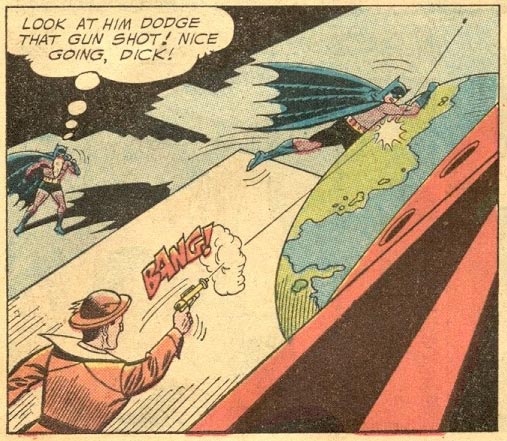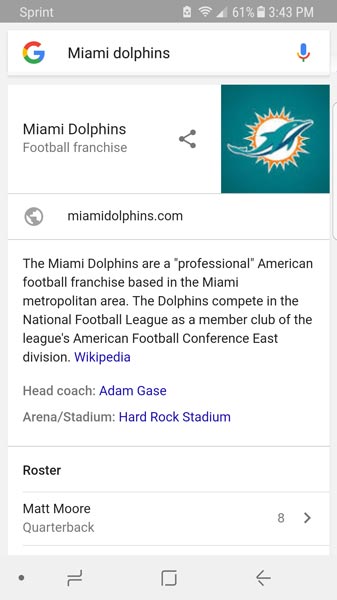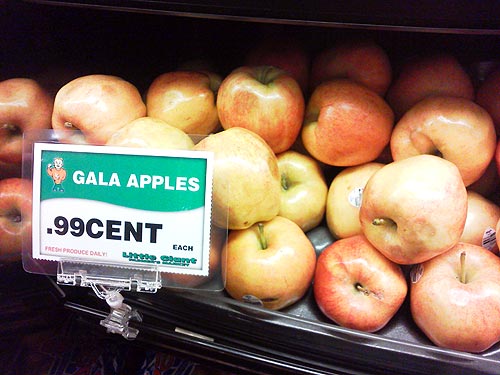Showing 1 - 10 of 23 posts found matching keyword: grammar
Friday 5 April 2024
A random thought while doing the dishes: Why is unwise a word but unsmart isn't?
Unsmart does not appear in the dictionary on my desk, my trusty Webster's New Twentieth Century Dictionary Unabridged (which I still deep into the 21st century because I don't want to grow up, I'll always be a 20th-century kid). Unwise is also nowhere to be seen in either The American Heritage Dictionary, 2nd College Edition we keep upstairs or my copy of The Official Scrabble® Players Dictionary, Second Edition. If it's not in the Scrabble® Dictionary, it's not a real word.
However, the Internet has never cared about reality. Merriam-Webster online recognizes "unsmart" as meaning exactly what you would think it means (i.e. "not smart"), but their example for how to use the word comes from the October 18, 2022 issue of Elle magazine:
Tweets swimming reports from Barton Springs pool; carries an unsmart phone so as not to be distracted by the internet; has lived in France; and read Anna Karenina in 16 hours.
So in this case unsmart means essentially landline. That's nothing like unwise (in word or deed).
Elsewhere, the online Oxford English Dictionary also has an entry for unsmart, going so far as to quote itself when it says "OED's earliest evidence for unsmart is from before 1500, in the writing of Robert Henryson, poet." Curiously, that citation is absent from the Online Etymology Dictionary, but I looked up The Complete Works of Henryson at the University of Rochester's Robbins Library and did find this in the "Prologue" of his 1480s work Fables, lines 22-25:
For as we se, ane bow that ay is bent
Worthis unsmart and dullis on the string
Sa dois the mynd that ay is diligent
In ernistfull thochtis and in studying.
As you can see, that is not English. (Henryson wrote like what he was: a Scotsman.) It's Middle English, where smart had nothing to do with intelligence but a "stinging, sharp pain." In other words, in this case unsmart is akin to relax. I wouldn't say that's unwise either.
So call someone dumb, but don't call them unsmart lest you sound stupid.
Next time: Why is uncharismatic a word but unfortitudinous isn't? Actually, wait. No, this one makes sense. Never mind.
Comments (0) | Leave a Comment | Tags: grammar internet poetry
Monday 4 March 2024
For reasons I won't go into (mainly: vanity), I've recently been re-reading old blog posts. What stands out the most to me is not how damn clever I am (I already knew that) but how I have a real problem typing the word "it's" when I mean "its" and vice versa.
For the record, "its" (no apostrophe) is the possessive form of the traditional gender-neutral singular pronoun, used to demonstrate ownership, as in:
The battle station is heavily shielded and carries a firepower greater than half the star fleet. Its defenses are designed around a direct large-scale assault.
Meanwhile, "it's" (with an apostrophe) is a contraction of the unpossessive, laissez-faire "it" and the present tense third-person singular being verb "is," as in:
The target area is only two meters wide. It's a small thermal exhaust port, right below the main port.
As you can see, despite the its/it's pair being one of the most common confusions in the world of English grammar, I obviously know they're two different words, and I know how they should be used in a sentence (and I've known ever since Star Wars). So why do I so often type one when I mean the other? Is it a birth defect? A mental illness? Keyboard gremlins? I wish I had a better answer than "I'm too lazy to proofread my own posts," but here we are.
Now let's blow this thing and go home.
Comments (0) | Leave a Comment | Tags: grammar star wars wriphe.com
Thursday 16 December 2021
Today's seasonal grammar lesson: The word 'tis means the same as the word it's. Both are contractions of it is, and in both cases the apostrophe replaces a missing letter i.
When they both first appeared around the 16th century, 'tis meant the same thing it does today, but it's was originally used as the possessive form of the gender-neutral third person singular it. After it's gradually became its (for unclear reasons), it's replaced 'tis (for unclear reasons). Now, if you erroneously type it's when you mean its, someone will snidely correct you in your comments section.
While we're on the subject, 'twas means it was and 'twere means it were, neither of which anyone ever contracts anymore, but I'm starting to think we all should. On the other hand, I think it wise to let 'tbe remain an unwhispered word.
Interestingly, both 'tis and 'twas appear with appropriate apostrophes and modern definitions in the 1806 first edition of Noah Webster's Compendius [a. ſort, brief, conciſe, ſummary] Dictionary. Comparatively, it, its, and it's are entirely omitted. (At least *I* think that's interesting.)
By the way, the only time you can get away with dropping the apostrophe from 'tis and 'twas is if you're playing Scrabble®, but that's because The Official SCRABBLE Players Dictionary© recognizes tis as the "the seventh tone of the diatonic musical scale" and twas as meaning "two." Sorry, Scrabblers, but twere is still not a legally recognized play.
Comments (0) | Leave a Comment | Tags: dictionary grammar
Saturday 18 September 2021
Twitter very helpfully reminds me that today is Batman Day 2021. Explains the site: "Fans pay tribute to the DC Comics superhero on Batman Day, which is celebrated each year on the third Saturday of September." The only problem with that description is that it is not true.
Maybe Batman Day is held on the third Saturday of September since 2018, but it wasn't always. As I have documented elsewhere, Batman Day has been all over the calendar since it was first recognized in July 2014. But that's not the part I'm really bothered by.
The word "fans" in that description is misleading, unless you'd describe the corporations who own the Batman intellectual property as fans. Unlike Star Wars Day, which began as a genuine celebration of its source material before being taken over as a marketing exercise by The Walt Disney Co., Batman Day has never been anything other than a marketing exercise by WarnerMedia.
I wonder if whoever crafted that description for Twitter wasn't having a little fun with the wording. The phrase "pay tribute," which has come to mean a figurative giving of praise, was originally meant quite literally. A tribute is a tax levied on conquered peoples. Give your thanks (and dollars!) to your corporate masters, Bat-fans!
Which is not to say that I don't like Batman or think it's uncool to say how great the Caped Crusader is. I'd just like a little honesty in why we chose today to do it, is all.

Batman #119, October 1958
Honesty! It's what Batman would want.
Comments (0) | Leave a Comment | Tags: batman comic books grammar holidays rant
Thursday 18 March 2021
Dictionary.com made news this week by defining "supposably" to mean "as may be assumed, imagined, or supposed." That's the same definition typically ascribed to "supposedly" ("according to what is accepted or believed"). There was a time in my life I would have been bent out of shape about this.
Where I come from, "supposably" is not a word. At least, it's not that word. According to my trusty Websters New Twentieth Century Dictionary of the English Language Unabridged (2nd Edition), "supposably" should mean "in a supposable manner." However, it has been used as a mispronunciation of "supposedly" for so long that some 21st-century lexicographers have finally thrown up their hands in defeat.
I have a personal connection to this word because my father has always uses supposably when he means supposedly. In his case, I think he does it because it bothers me. Dad's a real tease that way. (See? It's not my fault. I have been trained to be argumentative by a parent who thinks its fun to fly red flags in front of bulls!)
The reason I'm not a raving basket case over this new definition is because A) I've been reading a lot lately about the bizarre and often counter-intuitive developmental history of the English language, and B) the world is in such a state that if I let myself get worked up over words these days then I'm really going to need to start drinking. The meanings of English words have been meandering for centuries and will continue to do so for so long as someone is still speaking the language. I need to remember that the important part of language is understanding one another, not clinging to arbitrary rules of pronunciation.
That said, I will continue not using "supposably" in my own writing. Even in the 21st-century, a man's got to stand for something.
Comments (0) | Leave a Comment | Tags: dad dictionary family grammar rant supposably walter
Monday 18 June 2018
Sadly, these shorts were sold out by the time I spotted them on DHGate.com* at the bargain prices of $2.68 (with free shipping!):

*DHGate, for those of you who don't live on the Internet, is an online marketplace like Amazon.com for Chinese manufacturers seeking to unload surplus goods to resellers. This is where sweatshops sell their knockoff shoes after they've fulfilled their orders for Ivanka Trump. For example, compare these shorts with the $14.99 pair you'll find from SuperHeroStuff on Amazon.com.
And while I do want to wear Superman's shorts, I post this pic mainly because of the delightful Engrish catalog text.
CUSTUMES INSIDE TO WEAR
Give you the most suitable underwear, wear make you confidence. I
of you in the other half of the face, not inferior, to give you strength to master everything.
It takes a Superman to understand what that is trying to say.
Comments (2)
| Leave a Comment | Tags: catalog grammar superman underwearMonday 2 October 2017
While checking for news from the aftermath of Sunday's game between the New Orleans Saints and the Miami Dolphins in London, my phone returned this.

Some people don't know when or how to use quotation marks. Most of the time, they should be used when directly quoting someone, such as dialog in novels or citing from sources in news stories. The difference is clear in Jay Cutler said I suck, and Jay Cutler said, "I suck".
Quotation marks can also be used to prevent confusion when referencing a word or phrase itself and not its meaning. You can see what I mean in Jay Cutler prefers "dicks."
And, of course, there's a third use for quotation marks: denoting irony or sarcasm.
On Sunday, the Dolphins lost 20-0. The were shut out by the Saints, a team with a nearly historically bad defense. The highlight of the game was when Jay Cutler actively refused to participate in a Wildcat play. The petulant quarterback stood on the field with his hands on his hips and watched his team lose three yards on yet another drive that would end with a punt. With quality teamwork like that from its quarterback, no wonder the Dolphins are one missed field goal away from being 0-3.
Coach Adam Gase deciding to pay Jay Cutler $10 million instead of starting Matt Moore may prove to be the worst decision of his young head coaching career. Maybe not Nick Saban choosing Daunte Culpepper's knee over Drew Brees' shoulder bad, but not too much worse.
As you can see, the writer of that Wikipedia entry knew what he was doing.
Comments (0) | Leave a Comment | Tags: adam gase daunte culpepper dolphins dolphins quarterbacks suck football grammar jay cutler matt moore nick saban wikipedia
Thursday 26 March 2015
It seems that everywhere I turn these days, I'm hearing more and more of my current least-favorite word: "unbelievable."
Once upon a time, impressive feats of athleticism were "unbelievable." Then Internet service for $29.95 a month became "unbelievable." Now discovering that a forty-ton airplane won't stay airborne unless someone is really paying attention is "unbelievable."
To those of you who sprinkle the word into your daily lives, I do not think it means what you think it means. Merriam Webster describes "unbelievable" to mean "too improbable for belief." The definition includes vampires or peace in the Middle East but not delicious doughnuts or a coach's decision to pass instead of run.
There really aren't that many things we come across in the physical universe that are unbelievable. Infinity? God? That Kim Kardashian makes $28 million per year? Those are unbelievable.
If you literally are incapable of believing the things your eyes are showing you, it's not that those things can't be imagined, it's that you have no imagination. Personally, that is something I find pretty unbelievable.
Comments (0) | Leave a Comment | Tags: dictionary grammar rant unbelievable walter
Friday 16 November 2012
The 2012 New Oxford American Dictionary Word of the Year is "gif." That's right, "gif," as in the acronym for Graphics Interchange Format, a digital image format introduced to the world by CompuServe in 1987 and largely replaced in the 21st century by the patent-free Portable Network Graphics ("png") format. "Gif," pronounced either as "gift" without the "g" or as the peanut butter brand Jif, depending largely on what side of the Atlantic Ocean you're on, has finally climbed to the top of the logophile heap, and all it took was changing into a verb.
I'm not one to doubt the wisdom of the editors of the New Oxford American Dictionary, but I can't say that I've heard the word "gif" used as a verb yet. The archaic gif, unloved and abandoned by digital imagery professionals, now survives thanks to amateurs who have found that it makes a handy universal format for animating and sharing brief clips of children being attacked by animals and adults earning Darwin Awards. If anything, it's not "gif" that should be awarded, but "ISP," for finally building the Internet's tubes large enough to support the ridiculously bloated size of animated gifs.
Ultimately, I have to guess that if a 25-year old word is the Word of the Year, it must have been a slow year for words. Seeing the hoopla that "gif" got, I thought I'd take a look back at past words honored by the New Oxford American Dictionary:
- gif
- squeezed middle
- refudiate
- unfriend
- hypermilling
- locavore
- carbon-neutral
- podcast
It's almost like looking into a time capsule! All of those are zeitgeist words. Who refudiates anymore? I guess that means that in a few years, we won't even remember that in 2012 we giffed.

Yep, just like it all never happened....
Comments (0) | Leave a Comment | Tags: dictionary grammar refudiate trivia
Sunday 12 August 2012
Comparing apples to apples:

Less than 1 penny each? Damn, those are some cheap apples. In fairness, they were very bruised, but that only makes sense. The link between poverty and domestic violence is well documented.
Comments (0) | Leave a Comment | Tags: apples food grammar

